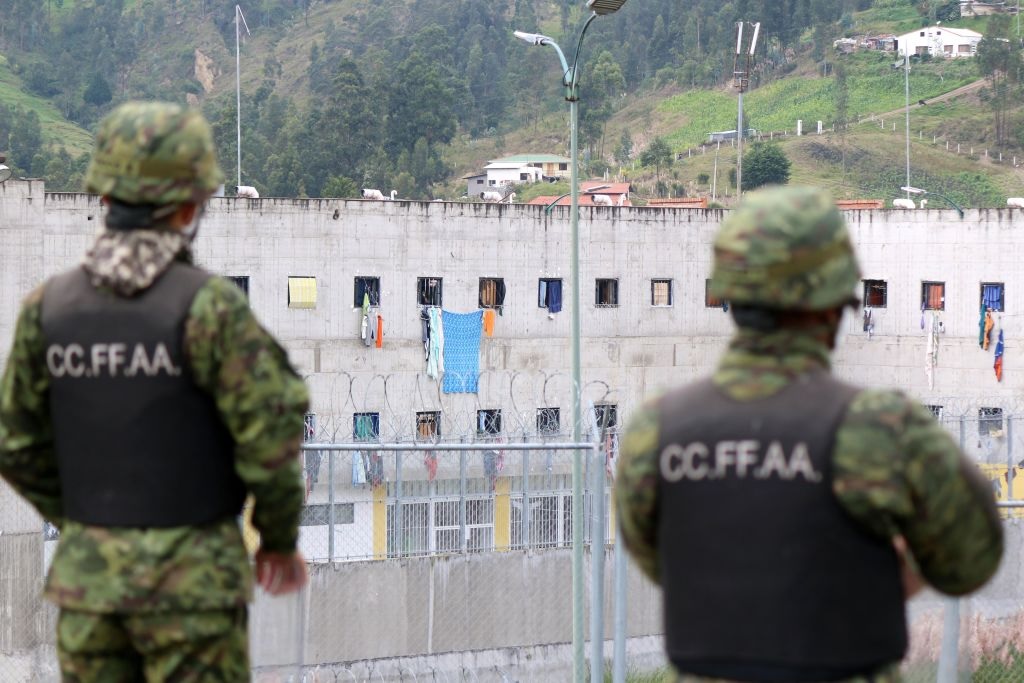RIO DE JANEIRO, BRAZIL – The scourge of organized crime, drug trafficking, common crime, and an unprecedented prison crisis place Ecuador as the country with the fastest increase in homicides throughout the region and reflect that reality exceeds the management of the Government of Guillermo Lasso.
If in 2021, the Andean nation registered more than 2,400 murders, reaching 14 homicides per 100,000 inhabitants (the highest rate in a decade, according to the InSight Crime Foundation) and practically doubling the figure for 2020, only between January and April of this year there are already more than 1,200 violent deaths accounted for by the National Police.
Daniel Pontón, professor at the Instituto de Altos Estudios Nacionales (IAEN), recalls that Ecuador experienced between 2009 and 2010 rates close to 19 but predicts that if nothing prevents the current trend, “it could far exceed that figure and be on par with Central American countries or Venezuela”.

Carolina Andrade, an expert in citizen security, agrees with him, underlining that if the Executive does not take containment actions, such as the last state of exception focused on three provinces, “we could soar to levels very close to Mexico”, which closed 2021 with a rate of 25.8, according to the Homicide Observatory of the Igarapé Institute.
UNPRECEDENTED FORMS OF VIOLENCE
Figures aside, the upturn in violence with hitherto unprecedented forms is evidenced this year in events such as the appearance of corpses hanging from a bridge in the province of Guayas, vehicle bombs in Esmeraldas after major drug seizures, as well as the explosion of drones in prison environments, which point to a “Mexicanization” of criminal practices.
“This violence is not only quantitative but qualitative and under a logic of media amplification that generates much concern,” warns Pontón about a phenomenon “that is beginning to become daily” and to have a “spill-over” effect.
The most evident symptom of the deterioration of the situation in a country that, until just over five years ago, was considered the second-safest in South America is the rise of hired killings in ways that go beyond the settling of scores between drug traffickers.
This practice generates real social commotion because many are recorded by surveillance cameras in broad daylight, even in the presence of children, and with a variety of targets ranging from prosecutors, lawyers, and businesspeople to individuals apparently not linked to criminal activities.
“At the beginning, the government claimed that it was a problem between drug gangs, but now there are murders to resolve trivial conflicts,” insists Pontón, noting that 70% of Ecuador’s provinces have significant homicide rates.
PRISON CRISIS
A separate chapter deserves the prison crisis that in the last two years has claimed the lives of more than 400 inmates in bloody clashes between rival clans and their splits involved in the drug business, which at the same time dispute the control of the prisons and the streets.
Violence in prisons has been exponential: in 2020, there were 46 prisoners killed; a year later, it rose to 316 in different massacres, and 2022 is on track to reproduce the pattern by accumulating 64 deaths so far, the latest in the carnage with 44 corpses piled up in the Santo Domingo prison yard.
Pontón frames these actions under the concept of “communicational violence” in a globalized world, “where criminals know that this violence spreads and marks territory under an instrumental logic”.
The analyst warns that it is impossible to explain the cruelty of these clans, reflected in beheadings and extreme brutality, “influence of the cartels that have been in Ecuador for a long time”.
RECENT MEASURES
President Lasso has announced that he will allocate US$1.2 billion to fight insecurity, has established a Pacification Commission to strengthen the penitentiary system, has advanced a law on citizen security, and plans to incorporate 30,000 police officers to fight crime.
However, Andrade believes that the decisions are arriving late and improvised, censuring the lack of civilian profiles to face a multidimensional phenomenon.
“For the first time in 20 years, the entire security sector is under the responsibility of the military and police passive service,” he said.
He proposes implementing the recommendations made by the Inter-American Commission on Human Rights (IACHR) and the UN regarding the prison problem, improving operational capacities, and focusing on the preventive axis against common crime.
His colleague favors forceful interventions and separation of prisoners according to their profile and fighting drug trafficking with strategic intelligence without disdaining the high impunity “in a system permeable to corruption and organized crime”.
With information from EFE

